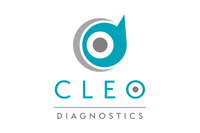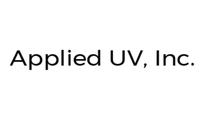The medical device sector is fast growing and innovative delivering solutions, from syringes to robotic surgery assistants, creating a significant potential opportunity for investors.
By Tara Chloe Dusanj
The medical device sector is fast growing and innovative delivering solutions, from syringes to robotic surgery assistants, creating a significant potential opportunity for investors.
However, the diversity of products can make it challenging for new investors who are looking for the next Electromed (NYSE:ELMD) or ResMed (NYSE:RMD).
Here’s a look at why some investors are taking a look at medical devices.
Global demographics
Previously, the dominating innovators for medical devices were the United States and Europe. However, we are now seeing an increase of development in China as well.
Increasing medical advancements in such up-and-coming markets is leading to increased health care utilization. Hospitals and new health care infrastructure are also driving the growth of medical devices.
The number of patients is also increasing. Baby boomers will increase the cost and complexity of care and prompt substantial medical device innovation. Overall, large aging populations are encouraging the use and need of medical devices.
The life expectancy in China has doubled since 1949. Certainly, this highlights a key consideration for investors, who should ponder the amount of a medical device company’s sales being generated overseas, and how fast revenues in those establishing markets is growing.
HealthCare information technology
The vast capacity of health care information services ignites various opportunities for medical device makers. They have the advantage to create systems that communicate the health concerns of patients directly into electronic medical records.
These advanced technologies add intrinsic value and information to health care providers. Insight from these trackers can be utilized to treat specific patients and measure health issues across an even bigger patient population.
Investors may discover that companies working on medical devices likes these could remain or become market share leaders.
Government regulation
Regulations by governments (which may increase the patient pool by mandating insurance coverage) impact the industry in a number of ways. For example, the Affordable Care Act brought millions of freshly insured Americans that are now consuming more and more medical devices.
Through taxation or price negotiation, government regulations can impact industry profitability. The Affordable Care Act is a perfect example of this as it taxes medical device makers 2.3 percent of their total revenue.
According to Venture Capitalist Dave Eichier, “[people] recognize that medical technology still has a very important role to play in terms of helping to lower cost and improve quality that remains an absolute imperative for healthcare reform no matter what happens with the Affordable Care Act.”
However, companies must also win over regulators within their market. The approval process for medical devices, like other medical products, can be slow, and this can affect a company’s cost of development and time to market. In countries outside of the US, pricing power might be affected by single-payer systems that can demand steep discounts. Keep a mindful eye on regulatory shifts and political trouble.
When Investing in Medical Devices:
- Be on the lookout for innovation
- Don’t worry about all of the details (you can’t know everything)
- Understand the life cycle of a company
- Know the role of the government
- Embrace a different valuation methodology
The medical device industry is likely to grow even stronger as new global markets develop, and people live longer. The industry has challenges, but the product innovation taking place is exciting and investors who do their due diligence can make significant profits.
Don’t forget to follow us @INN_LifeScience for real-time news updates.
Securities Disclosure: I, Tara Chloe Dusanj, hold no direct investment interest in any company mentioned in this article.



